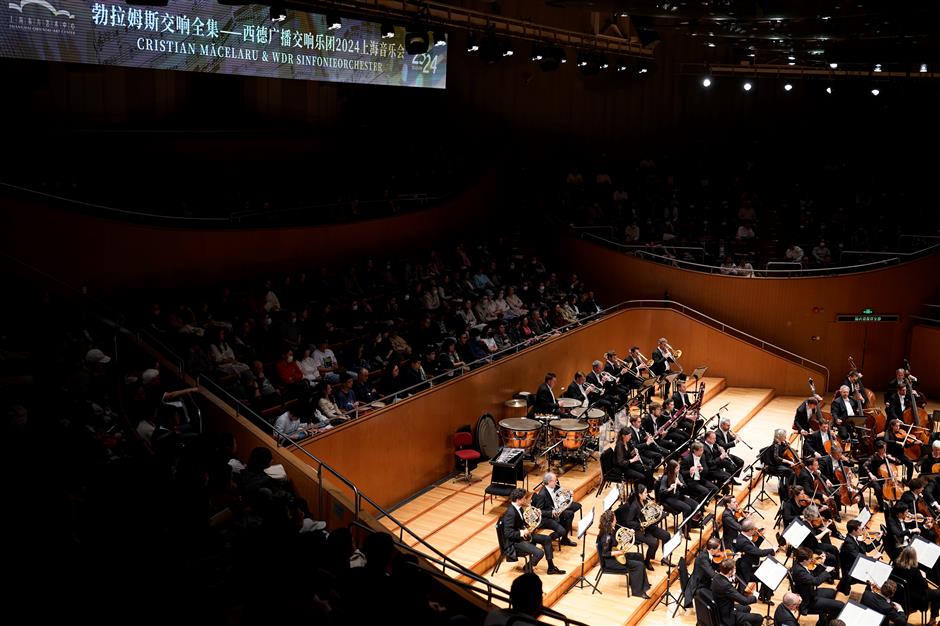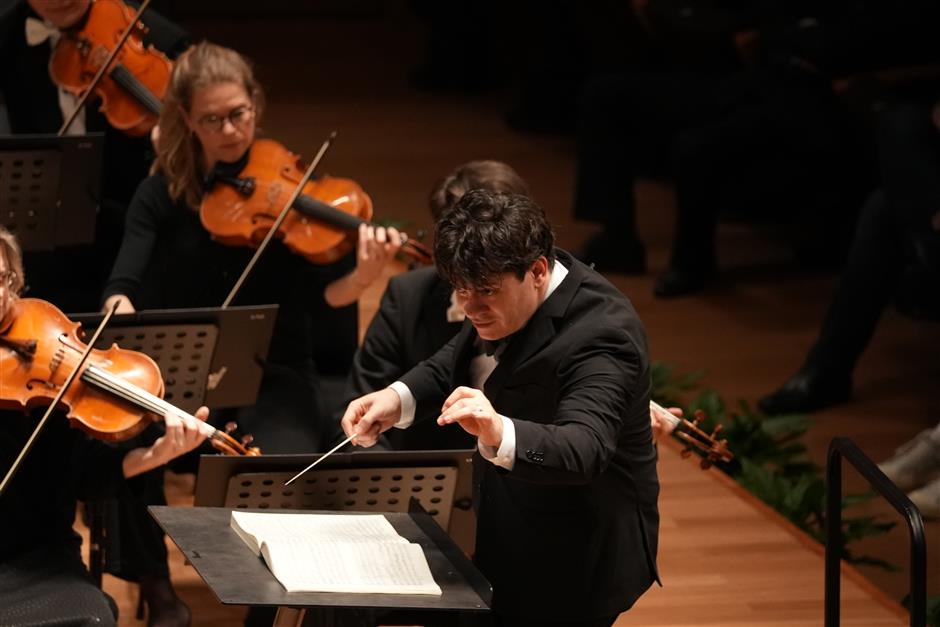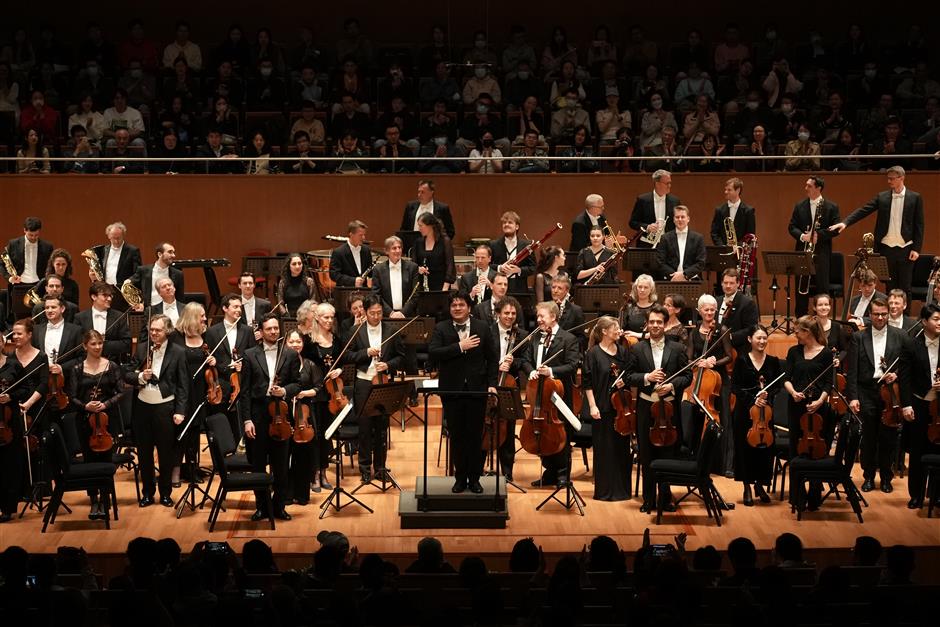政府新闻
获奖指挥家将角色比作镜子抛光师 2024-04-19
Cristian Măcelaru compares himself to a mirror polisher when explaining his the role as a conductor. The Grammy Award-winning conductor from Romania is leading the WDR Symphony Orchestra to perform the complete set of Brahms' symphonies in Shanghai this week.
The orchestra performed Brahms' Symphony No. 1 and No. 3 on Wednesday evening at the Shanghai Oriental Art Center, and will continue with Symphony No. 2 and No. 4 on Thursday evening.

Cristian Măcelaru leads the WDR Symphony Orchestra at the Shanghai Oriental Art Center.
It has been nine years since the Cologne-based orchestra last performed the complete set of Brahms in China.
"Brahms' music can very clearly represent the identity of the WDR Symphony Orchestra as a first-class German orchestra," said Măcelaru. "On a culture-sharing trip like this, we want to present the complete set of Brahms' symphonies, which is unique and not performed very often."
In Măcelaru's theory, music works like a mirror. What audiences see and hear from a concert depends on what they bring to the concert – their own feelings and emotions – and the conductor is a mirror polisher.

Cristian Măcelaru shares his musical insights with local media in Shanghai.
"What Brahms felt when writing the music and what he intended to show is only matched when audiences are at the same level. My job is to make sure the mirror is very clean," he said.
"A composer writes down the feelings and emotions in his universe in the form of a two-dimensional presentation – the score. My job is to understand the presentation and recreate a universe that existed some 150 years ago.
"The orchestra follows every step correctly to revive the composer's intention. My focus is to present Brahms as clearly as possible so that the audiences will understand his music and even discover something more beautiful which is brought to the concert by themselves."
Măcelaru said the complete set of Brahms' symphonies is like a movie of the composer's life.

In Măcelaru's theory, music works like a mirror, reflecting audience members' feelings and emotions.
"When approaching music, I try to understand first who the composer was, including his personality and the different moments of his life when the four symphonies are written," he said.
Măcelaru was open and welcoming when sharing his understanding of each of the four symphonies.
In Măcelaru's view, the first symphony is the most complicated and difficult and took the composer 15 years to complete. Brahms felt shadowed by musicians before him, and that's why the start of the symphony was dark and deep. Then it transforms beautifully as if the composer tries to lift himself away from that pressure.
The second symphony showcases the composer's maturity and intention to develop his own way of music, which was influenced by the Viennese culture.

Măcelaru has visited Shanghai several times in the past two decades.
The third symphony is the most philosophical, in which Brahms declared himself to be different from others – he is alone, but happy in his loneliness.
The fourth symphony showcases Brahms' mastery and goes back all the way to Bach's music form of Passacaglia, but in his own way.
Măcelaru is happy to be an ambassador of German music and culture, whose first Shanghai visit dates back to 2002.
"On my second visit, I watched from my hotel room how the Jin Mao Tower was being built," he said. "It's shocking to see how much Shanghai has changed in the past two decades."

Măcelaru and the orchestra acknowledge the audience.
What impresses Măcelaru most is Shanghai people's attitude toward Western culture.
"The thing that touches me most is how much Chinese people have taken an interest in European culture," he said. "To me, this is a statement of peace. The fact that you are interested in someone else's culture leads to peace, because the more you know about someone's past, the more you appreciate who they are today."
Măcelaru has brought his children to Shanghai this time, planning to take them to the Shanghai Museum to learn about China's thousands of years of history and culture.
Apart from music, travel and chess are his major hobbies.
"Chess has become more than a hobby, but an obsession that I think about all the time," he said. "It has many rules, but you need a lot of creativity to master it, and conducting is very similar."
Source: Shanghai Daily
